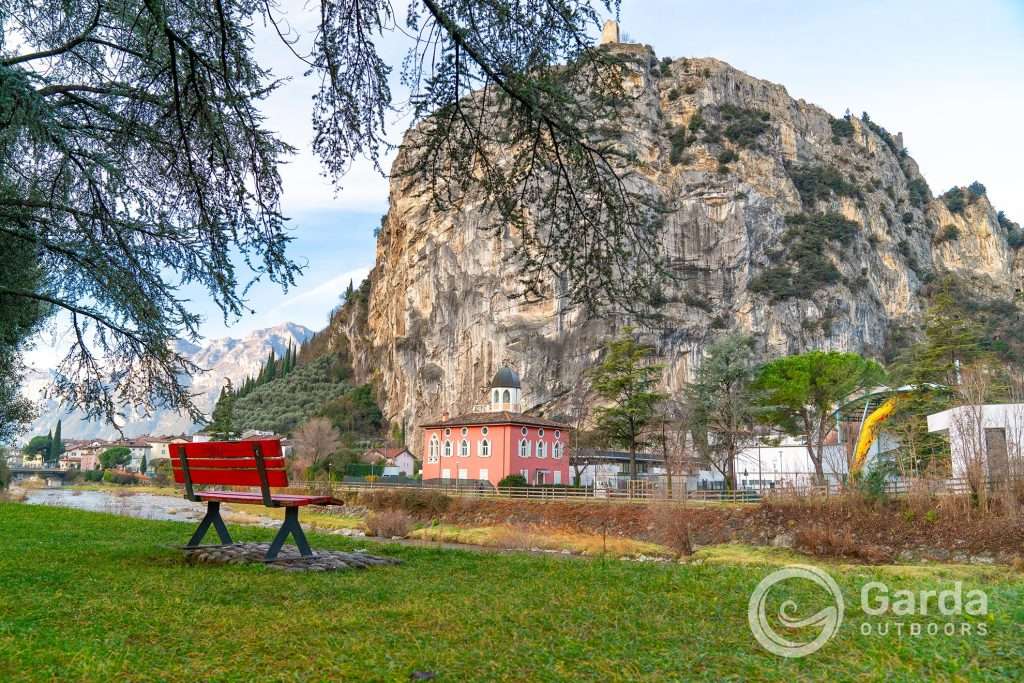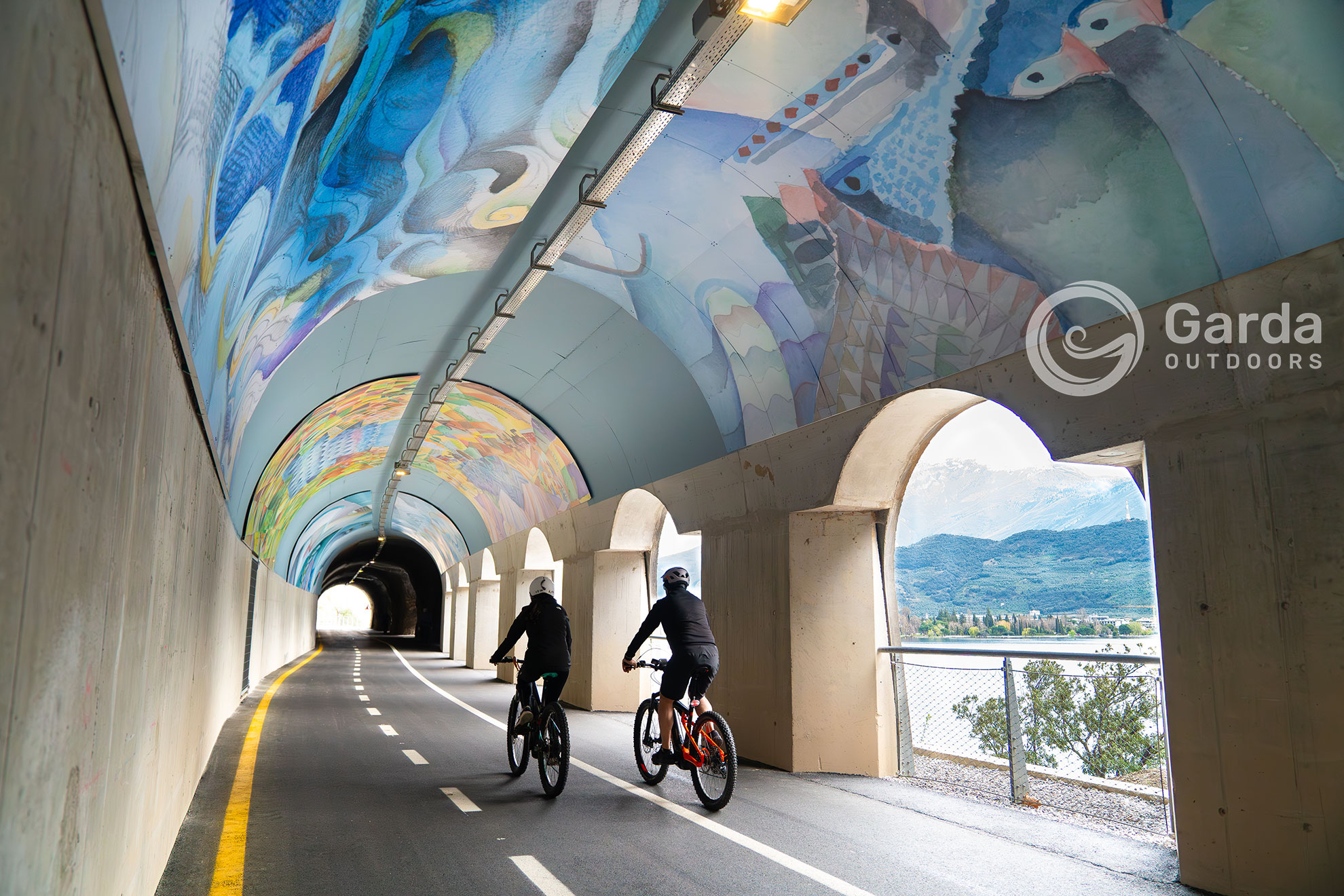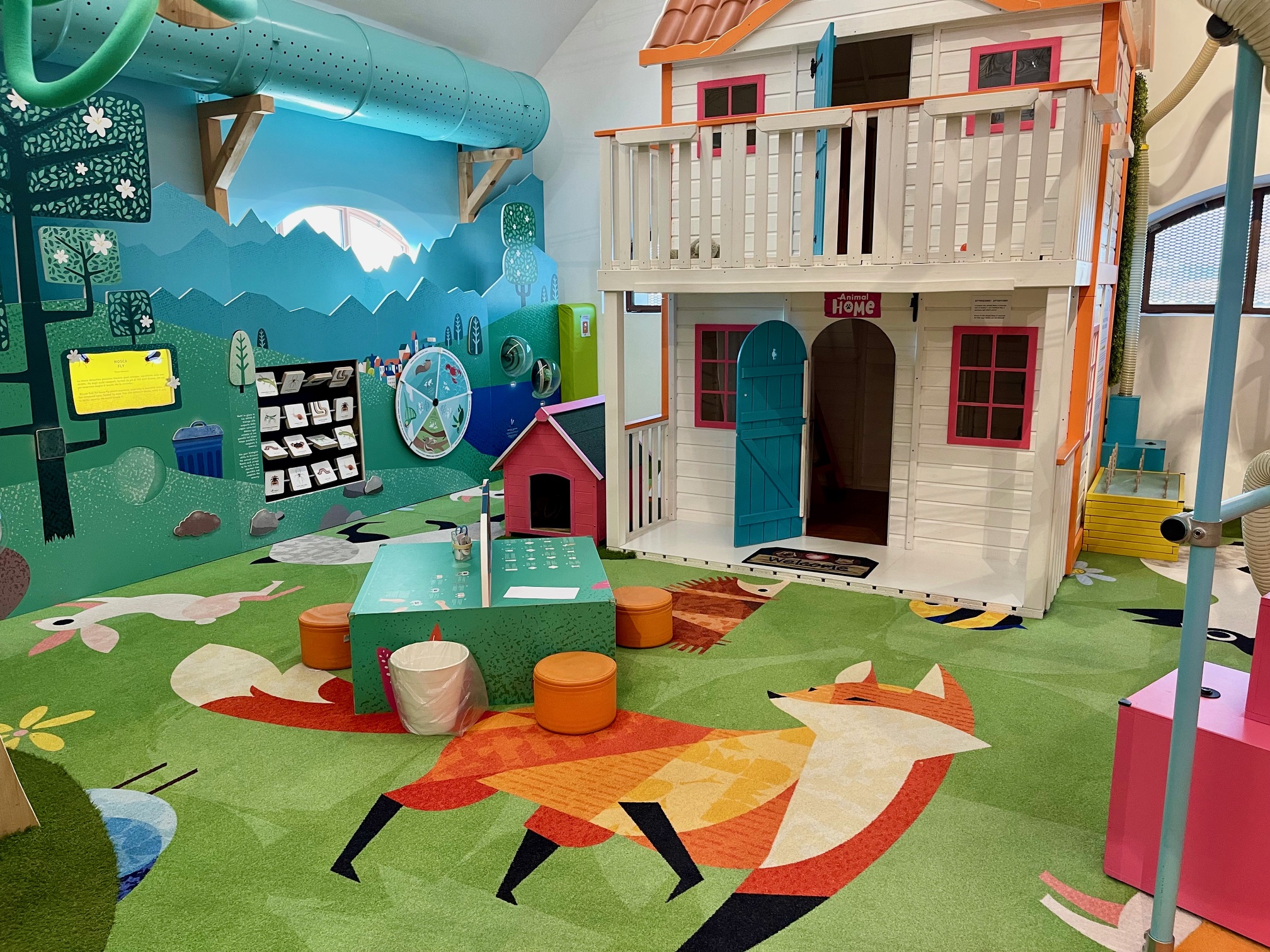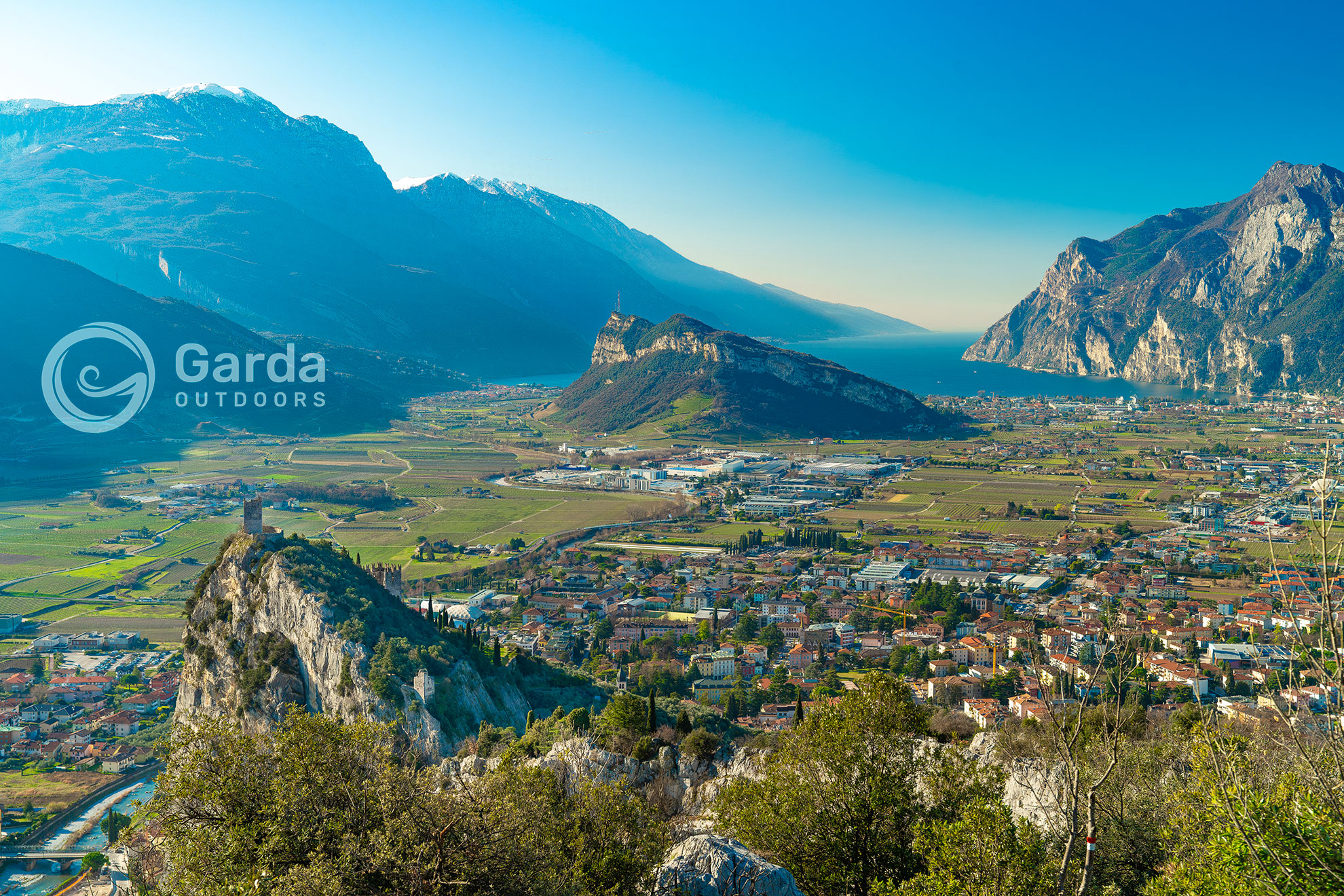Imagine a lunar landscape, just a stone’s throw from the Alps. A labyrinth of enormous boulders, piled in eternal chaos, witnesses to a history written millions of years ago.
The Marocche di Dro are precisely this: a work of art sculpted by nature, a mystical place where time seems to have stood still.
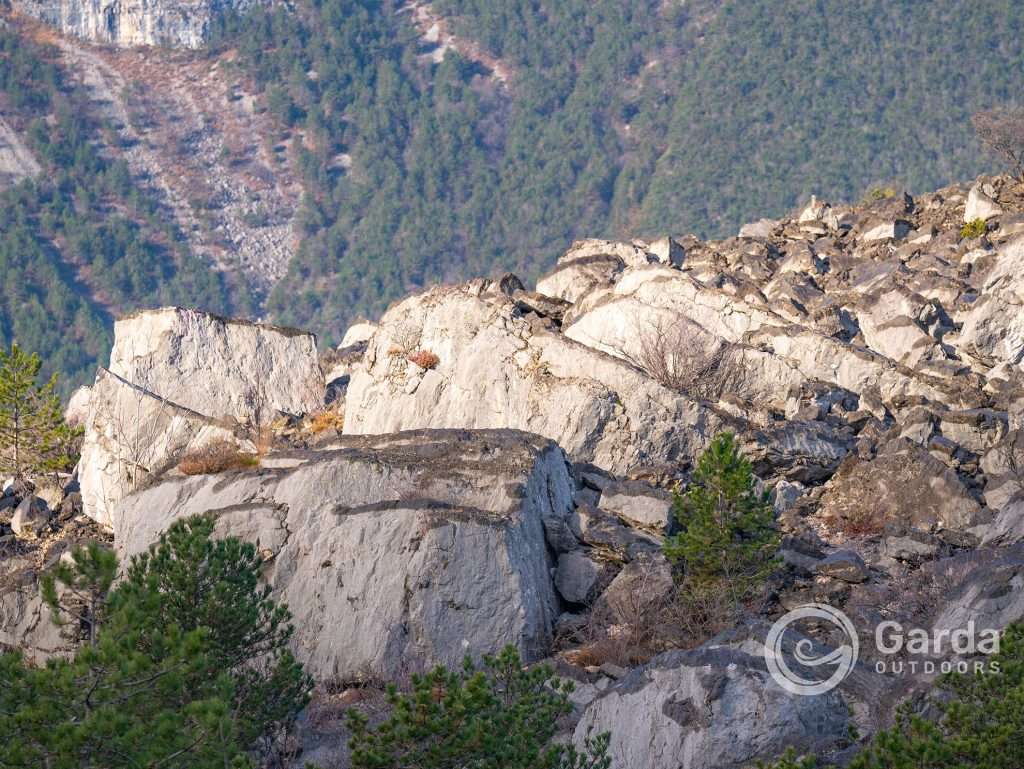
Marocche di Dro Biotope
The Marocche di Dro are the result of colossal landslides linked to the Quaternary glaciations, which dramatically shaped the terrain. These events were caused by massive collapses from Monte Brento and Monte Casale, which dominate the right side of the valley, and by enormous slides from the left slope.
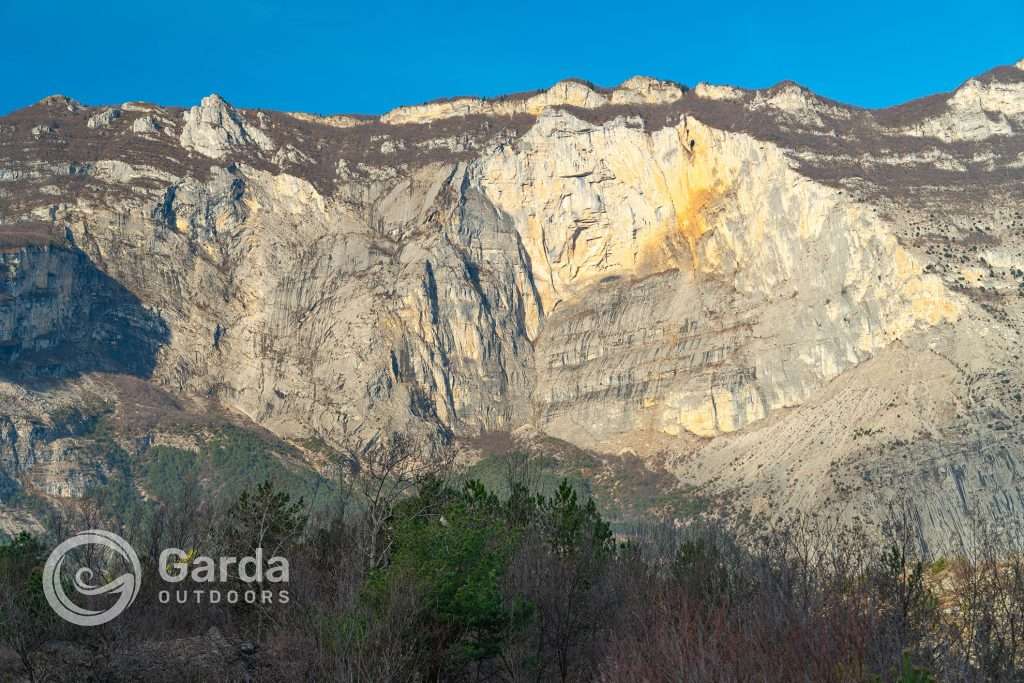
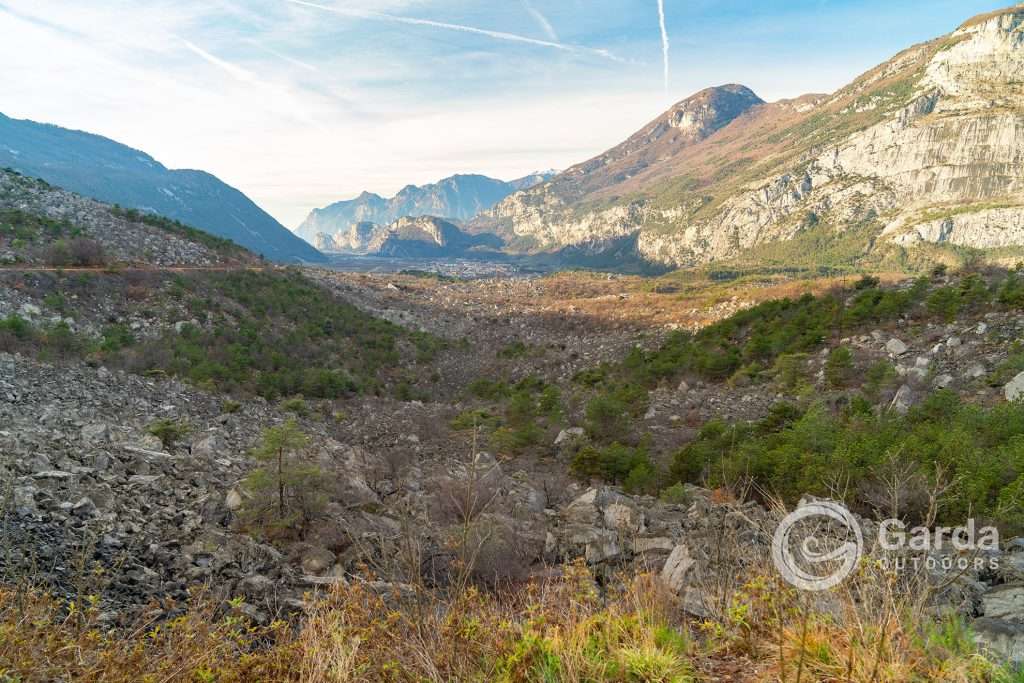
The largest landslide in the Alps
The maximum expansion of glaciers during the last ice age occurred about 20,000 years ago. Subsequently, their slow retreat began, including that of the Atesino Glacier, which had flowed through the Sarca Valley for millennia.
As the pressure exerted by the ice on the slopes diminished, some mountain walls began to collapse. The Marocche di Dro, with their 13 km² expanse, constitute the largest post-glacial landslide in the entire Alps.
The Trentino dialect term “marocca” has its roots in the Paleo-European word mar, meaning stone or rock—a name that perfectly captures the primitive and imposing nature of this place.
The Marocche di Dro are not only a geological masterpiece but also a Site of Community Importance (SCI) protected by the European Natura 2000 network. This area is a Natural Reserve with short trails and panoramic viewpoints, offering breathtaking views of the extraordinary geological formations and the rich ecosystem that has adapted to this harsh yet fascinating environment.
In the biotope, typically Mediterranean species such as the Holm Oak and the Terebinth thrive; the debris area is colonized by shrubs and bushes, as well as Black Pine plantations resulting from reforestation efforts. The rare Daphne alpina is also reported here.
Reptiles are the typical inhabitants of these arid, sun-drenched environments, including the Western Whip Snake, the Green Lizard, and the Common Wall Lizard.
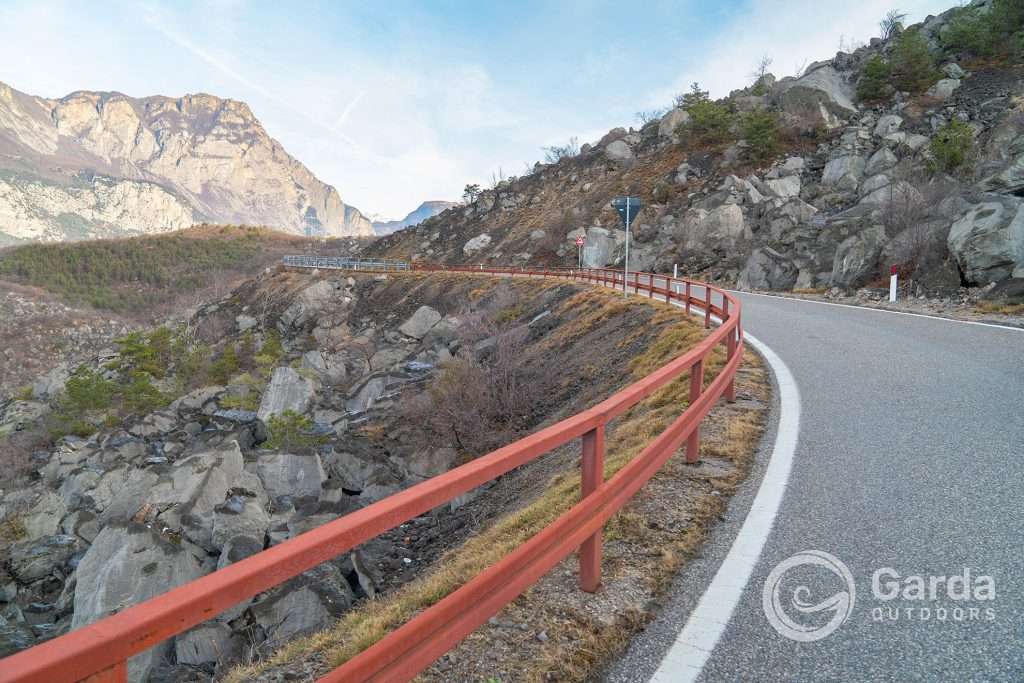
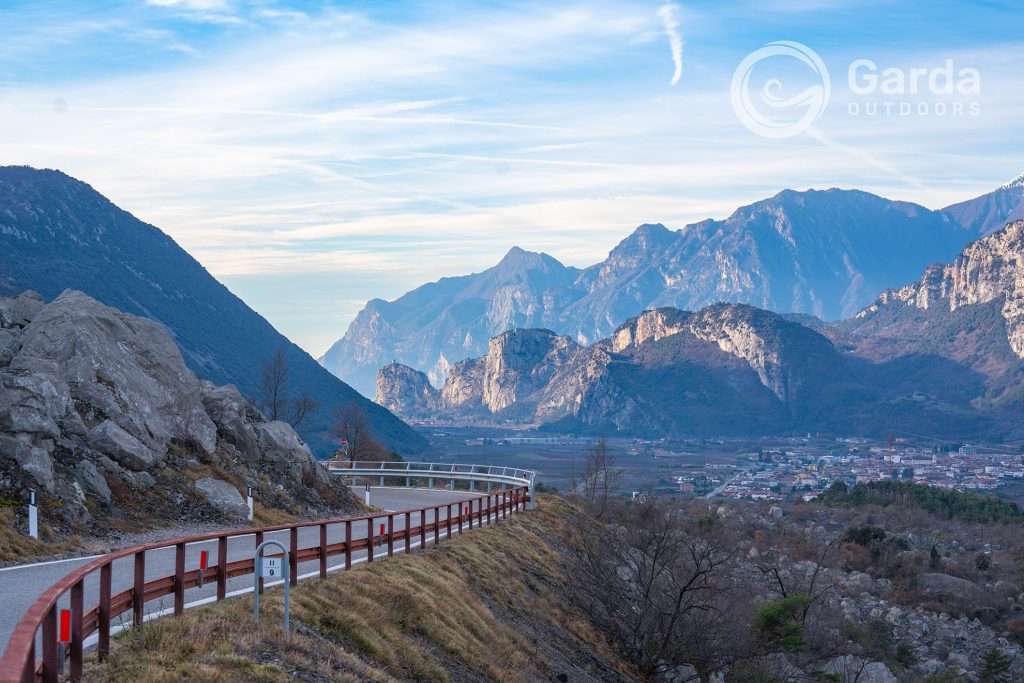
Dinosaur footprints: a leap into the past
Among the wonders preserved in the Marocche are dinosaur footprints dating back approximately 190 million years. These tracks, left by at least two different species—a large herbivore measuring 6-7 meters in length and a carnivore—are found on huge rock blocks scattered across the Kas landslide area in the eastern sector of the reserve. They were discovered in 2000, having withstood the test of time, even as the limestone rock that hosts them slowly erodes due to karst phenomena, wearing away at a rate of one centimeter every thousand years.
On-site, there is a well-designed sign that explains in detail, yet simply and accessibly, why these footprints are found here. It’s truly incredible to still be able to see them today!
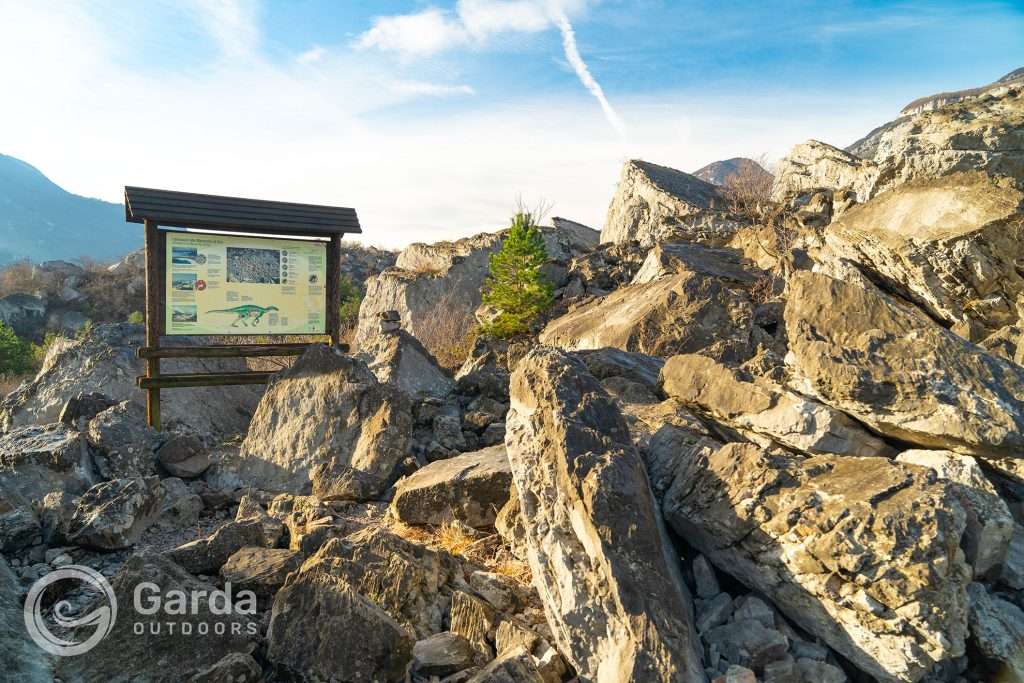
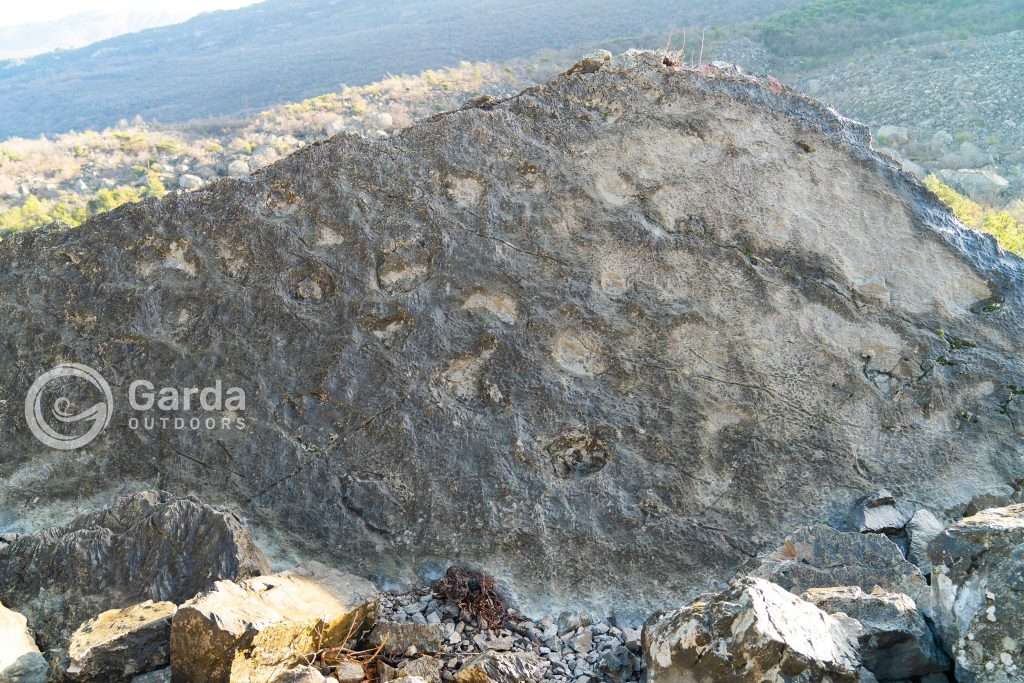
Route to reach the Marocche di Dro
By bike
To begin exploring this fascinating landscape and its surroundings, we recommend starting from the convenient parking lot in Arco (Parcheggio alla Sarca – Via P. Leonardi – Arco).
From there, you can access the beautiful cycling path that runs alongside the Sarca River, the main tributary of Lake Garda, heading towards Valle di Cavedine/Drena/Marocche.
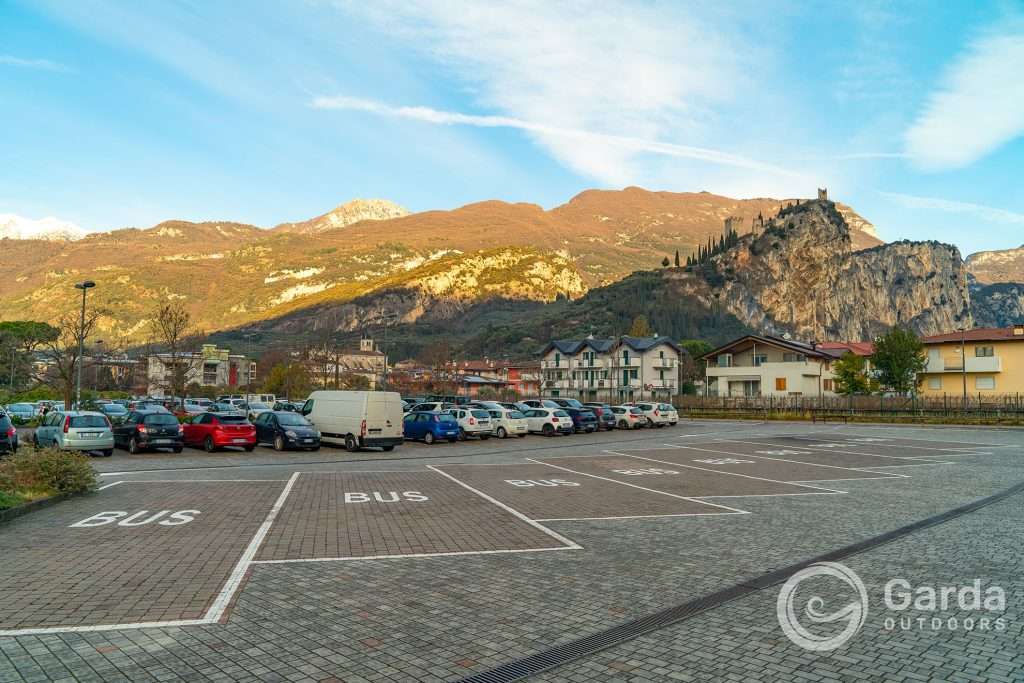
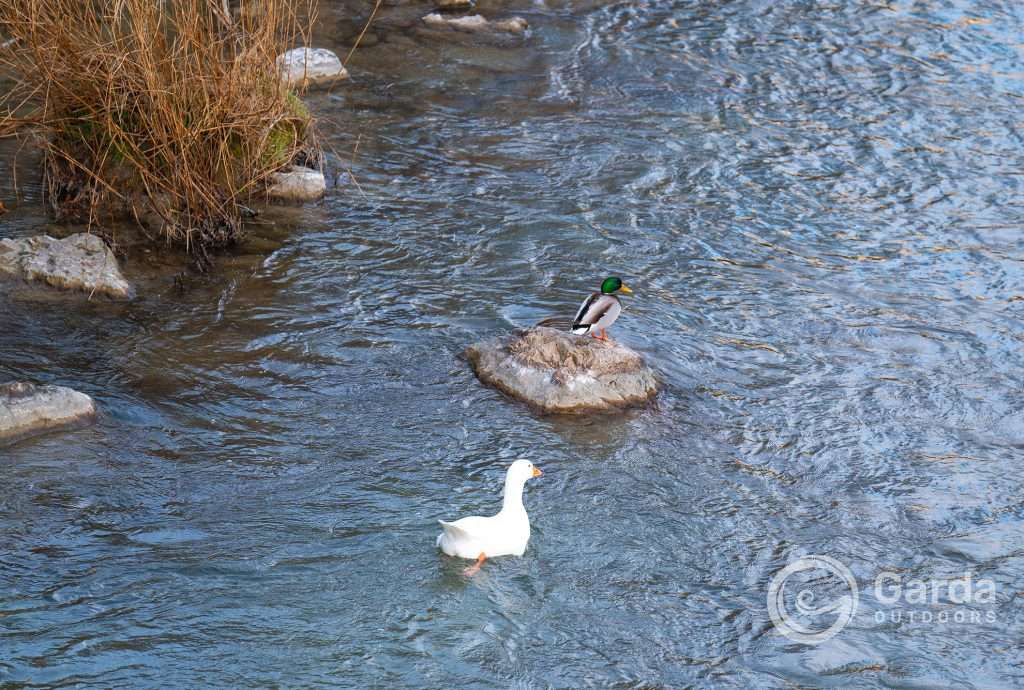
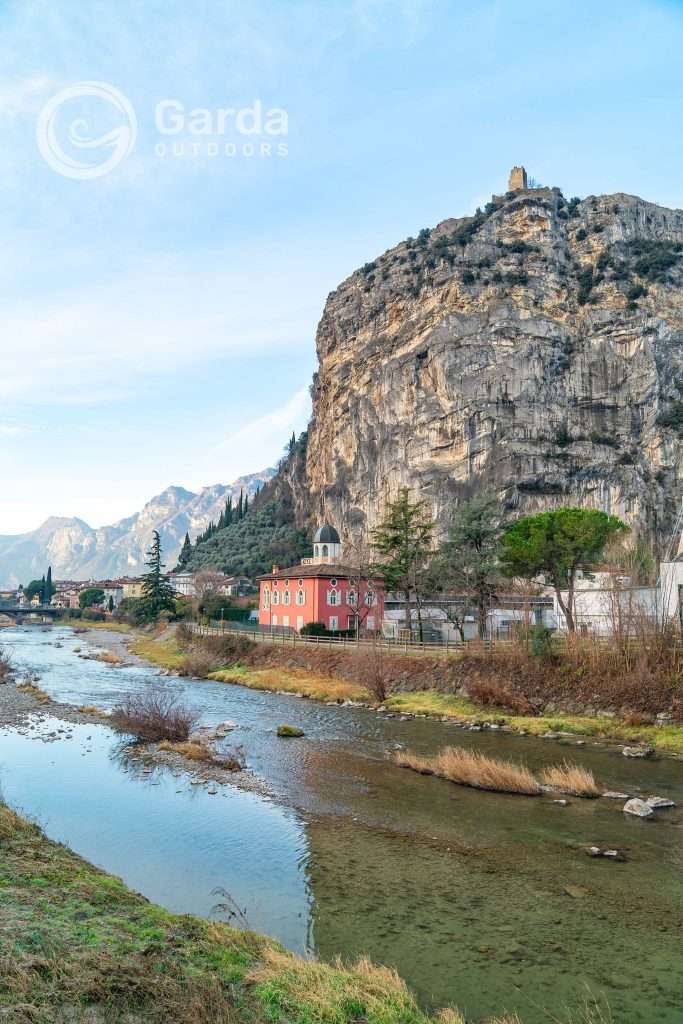
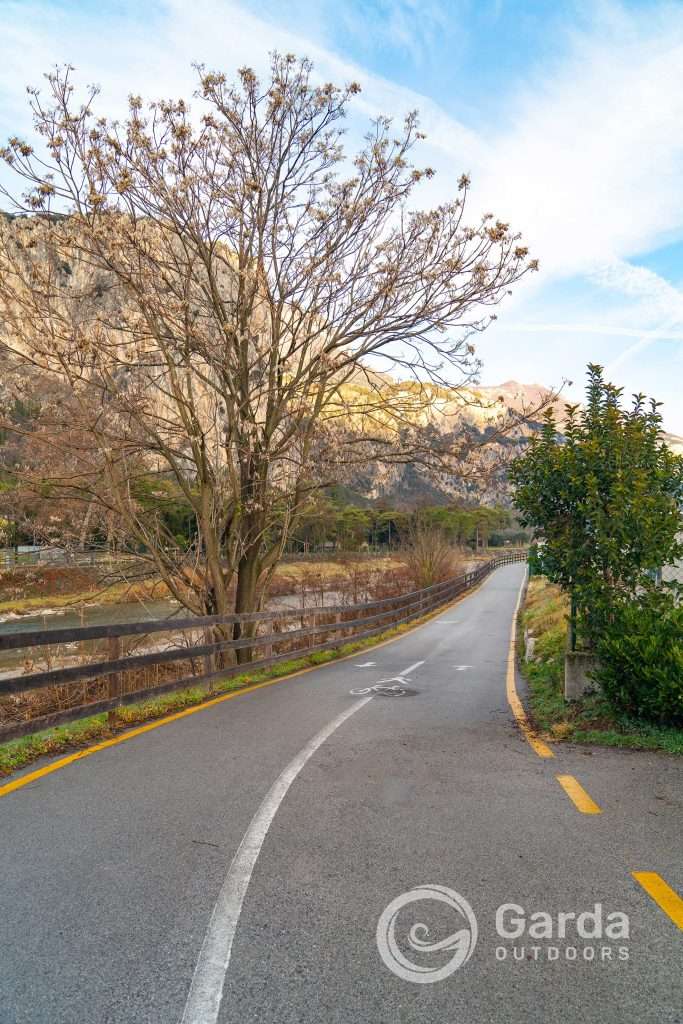
After passing Arco, exit the cycling path to take the well-marked asphalt road towards Marocche di Dro. Although it’s a state road, it’s never too busy, so you can enjoy the scenery while cycling at a leisurely pace.
Once you’ve started on the Strada delle Marocche, you’ll find a large parking area on the left, from which you can access the first panoramic viewpoints via marked trails. From here, you can also spot the castle of Drena perched on the hill in the distance.
If you’d like to skip the initial cycling portion, you can start from this parking area.
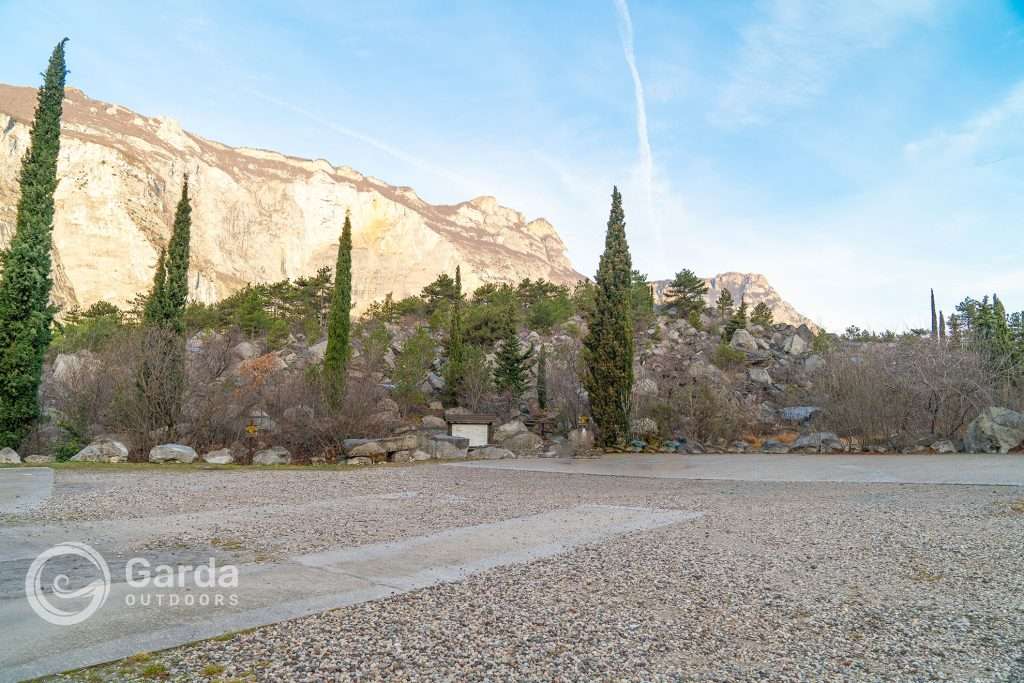
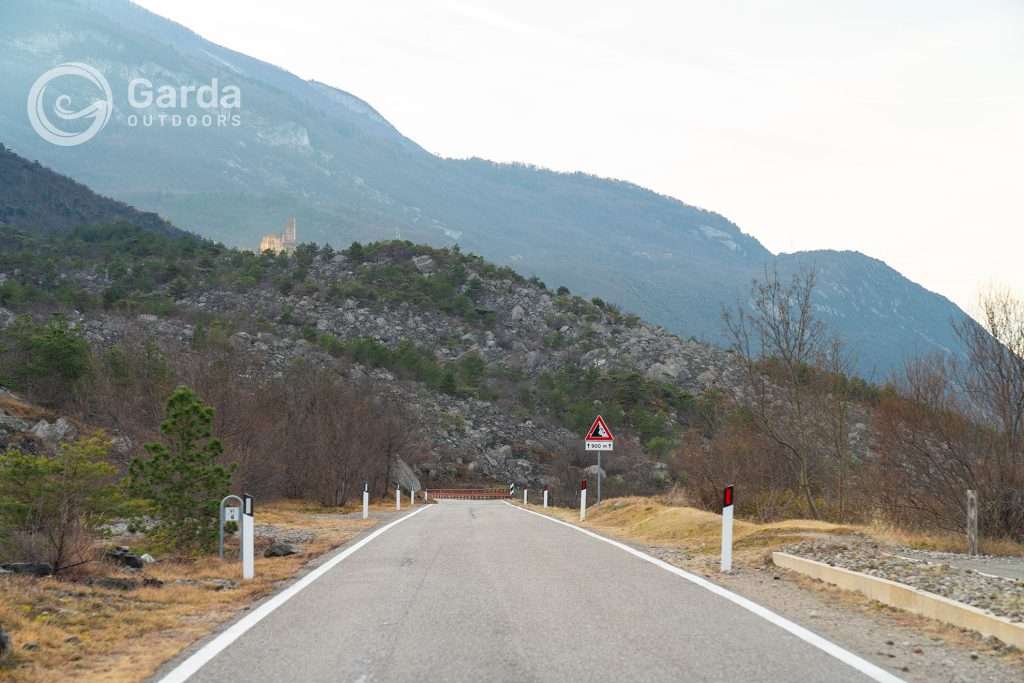
Continue along the road, and after about 200 meters, you’ll find the entrance to the trail on the left, which quickly leads you to the dinosaur footprints and the most breathtaking views of the Marocche.
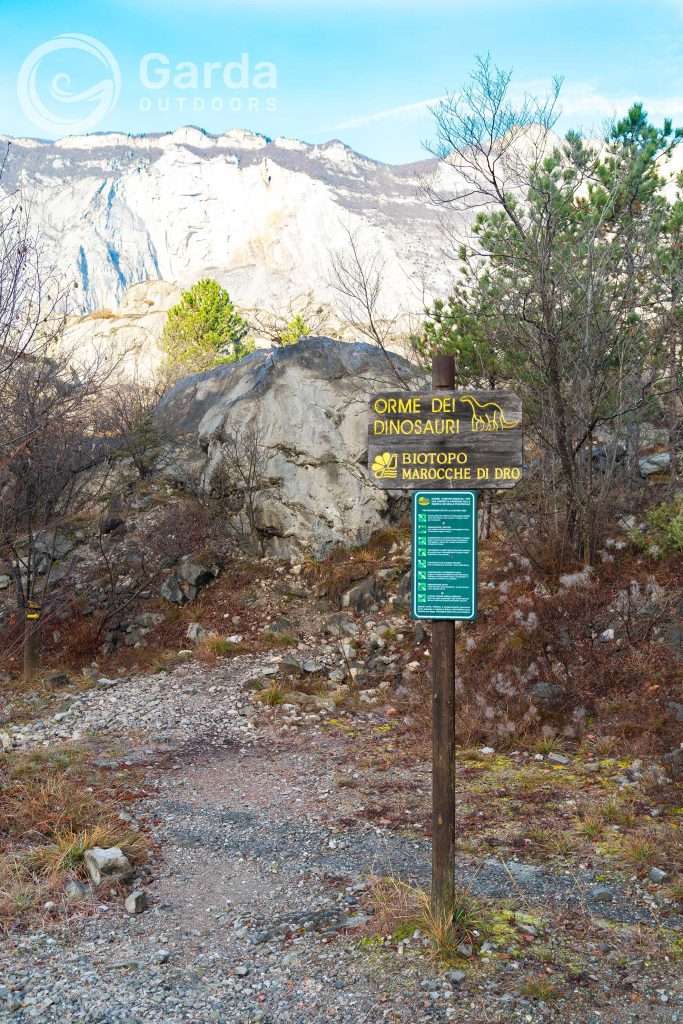
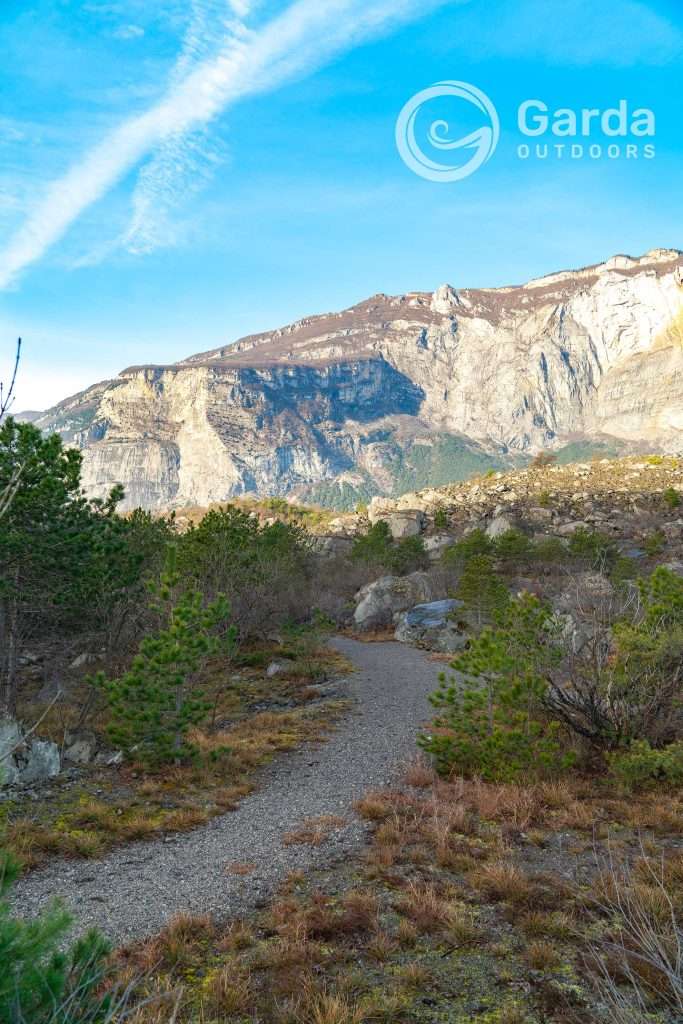
Continue along the road, savoring every glimpse of the landscape. Once you’ve left the Natural Reserve, you can return by following the signs for Pietramurata, rejoining the Sarca cycling path that takes you back to Arco and extends to Riva del Garda and Torbole if you’d like to enjoy a bit of Lake Garda’s breeze.
Alternatively, after leaving the reserve, you can continue towards Lake Cavedine and Lake Toblino, stopping for a break at the iconic Cantina Hosteria Toblino or the elegant Ristorante Castel Toblino to sample the delicious Vino Santo—a dessert wine known as the “king of passito wines” due to its uniquely long drying process (from the first week of October until Holy Week at Easter).
This route, which is the most comprehensive, is a total of 40 km round trip, mostly flat, with an elevation gain of about 200 meters.
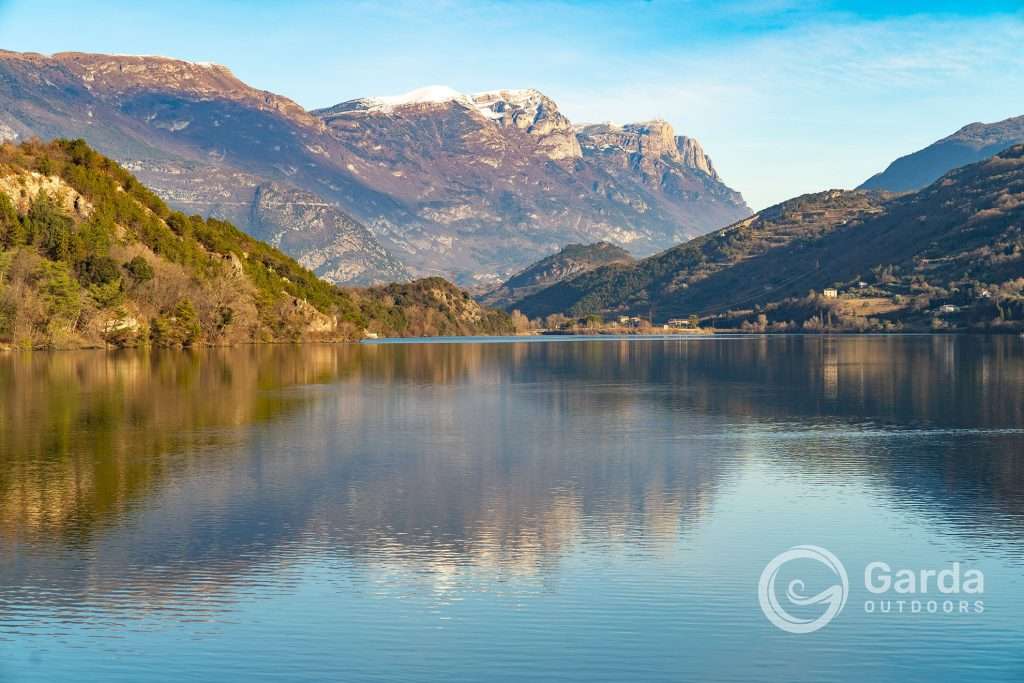
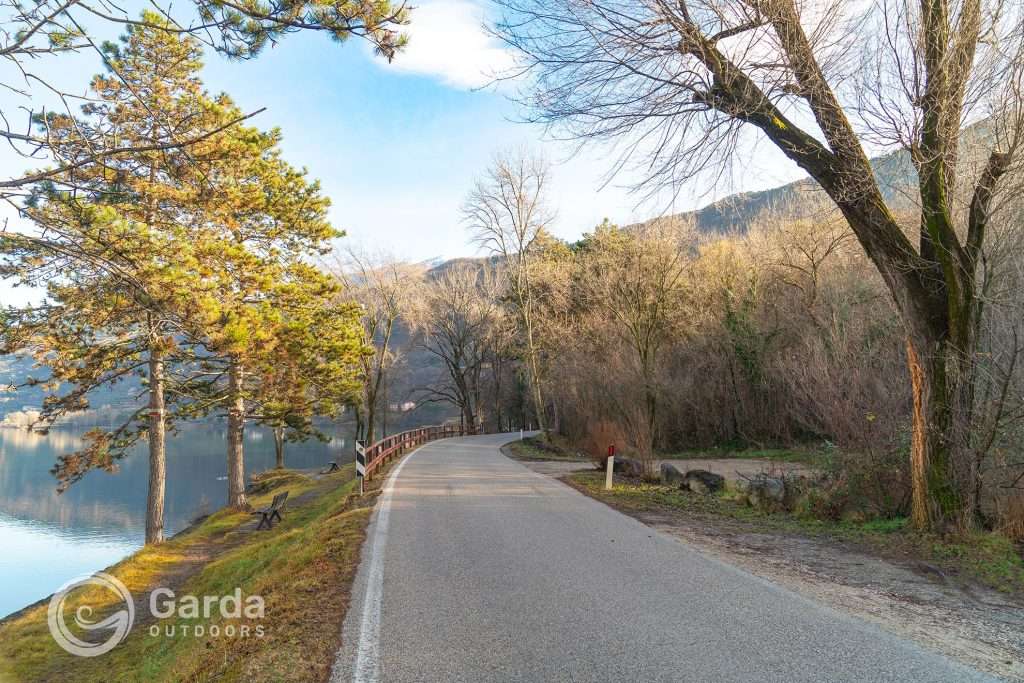
By car
For those who prefer to visit the Marocche di Dro by car, we recommend following the road towards Valle di Cavedine/Drena/Marocche, then turning onto the Strada delle Marocche, which is well-marked by road signs.
Once you’ve started on the Strada delle Marocche, you’ll find a large parking area on the left, from which you can access the first panoramic viewpoints via marked trails. From here, you can also spot the castle of Drena perched on the hill in the distance.
Continue on foot along the road, and after about 200 meters, you’ll find the entrance to the trail on the left, which quickly leads you to the dinosaur footprints and the most breathtaking views of the Marocche.
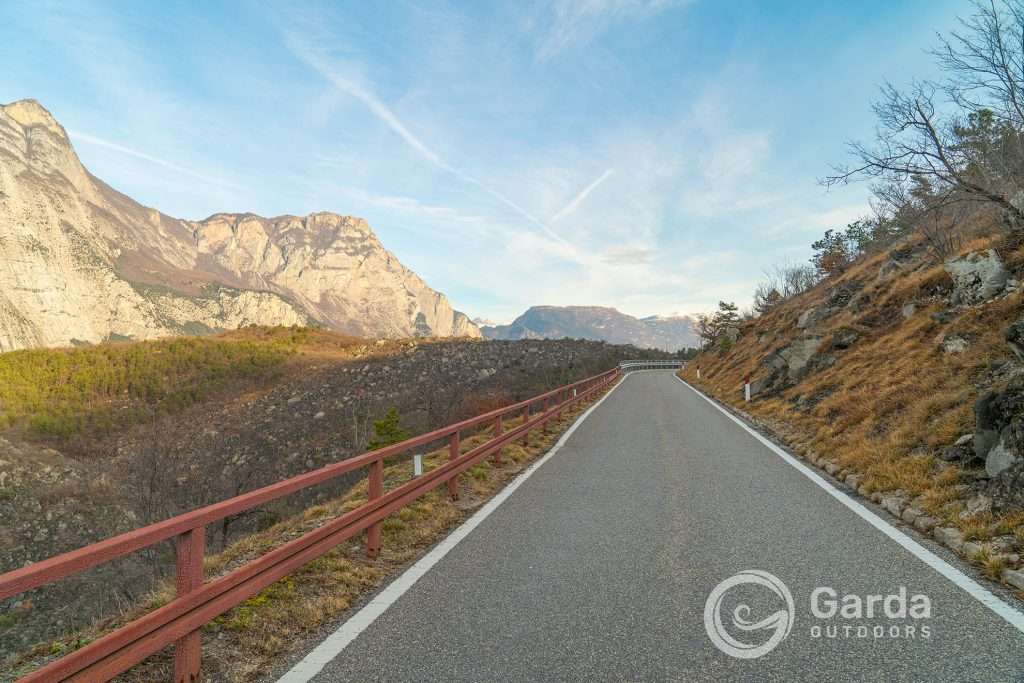
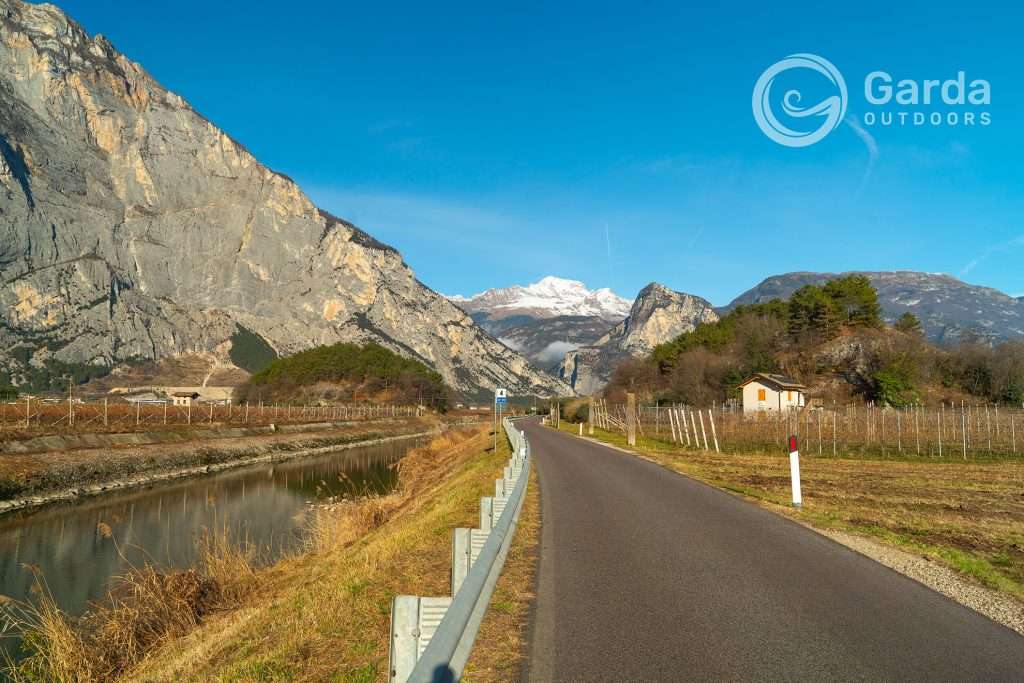
Return to your car and proceed slowly along the road to enjoy every scenic view. After leaving the Natural Reserve, we recommend extending your trip to visit the beautiful lakes of the Valle dei Laghi and sample its unique food and wine specialties.
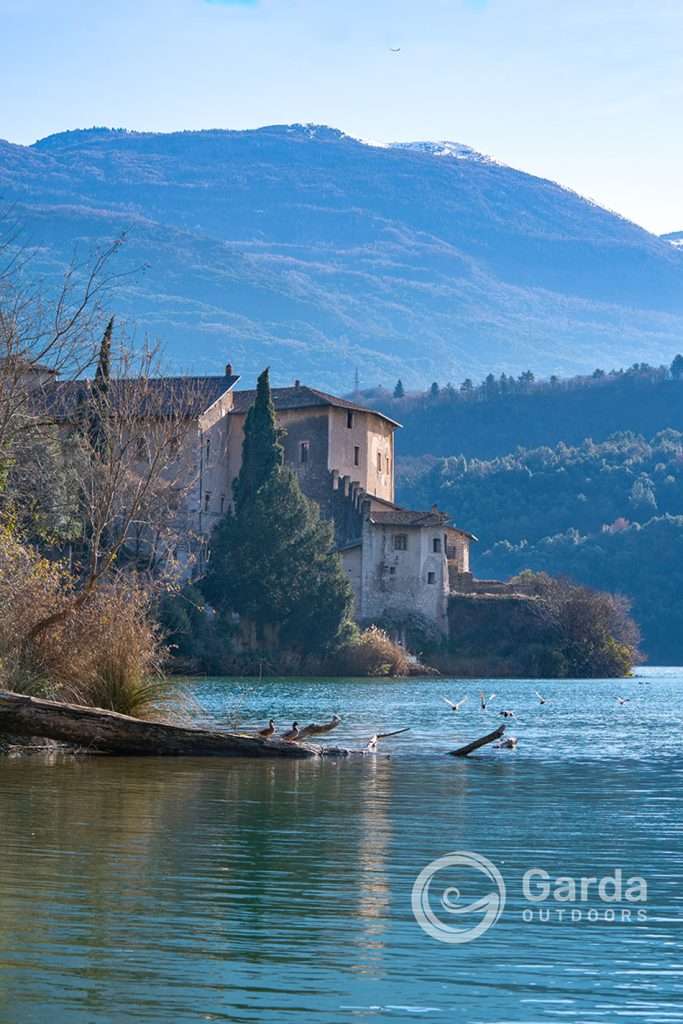
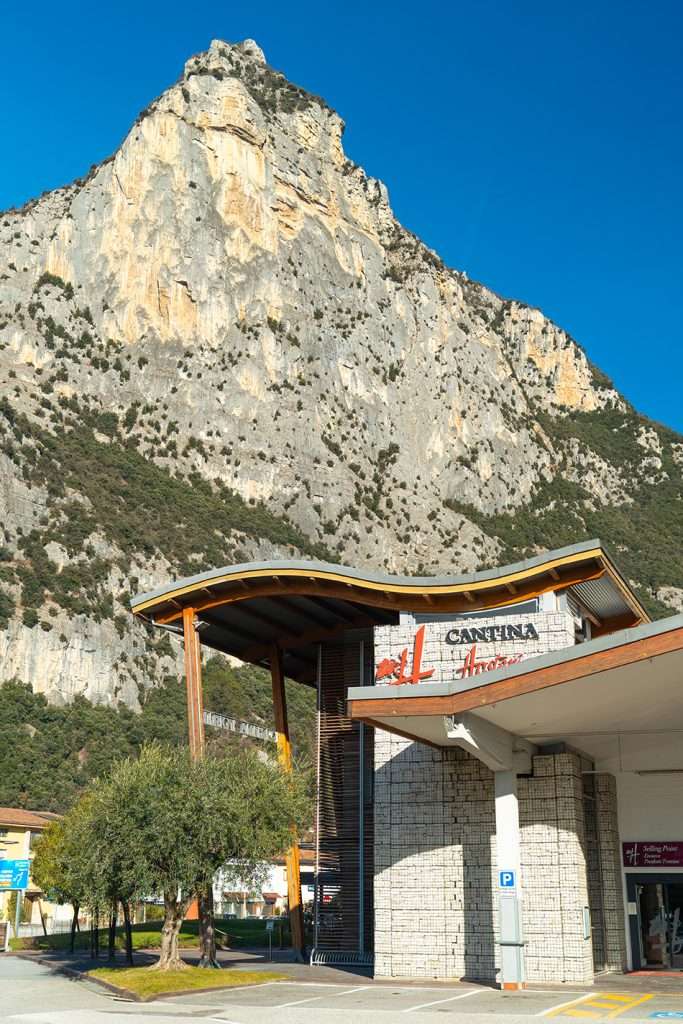
When is the best time to visit the Marocche di Dro?
This stunning landscape can be visited year-round. In the height of summer, we recommend wearing hats and staying well-hydrated, as there is no natural shelter from the heat.
However, the best time to explore the Marocche is undoubtedly winter: the air is crisp, the vegetation is dormant, leaving the boulders exposed, and the trails are at their most peaceful and solitary.
Always check the weather conditions beforehand.
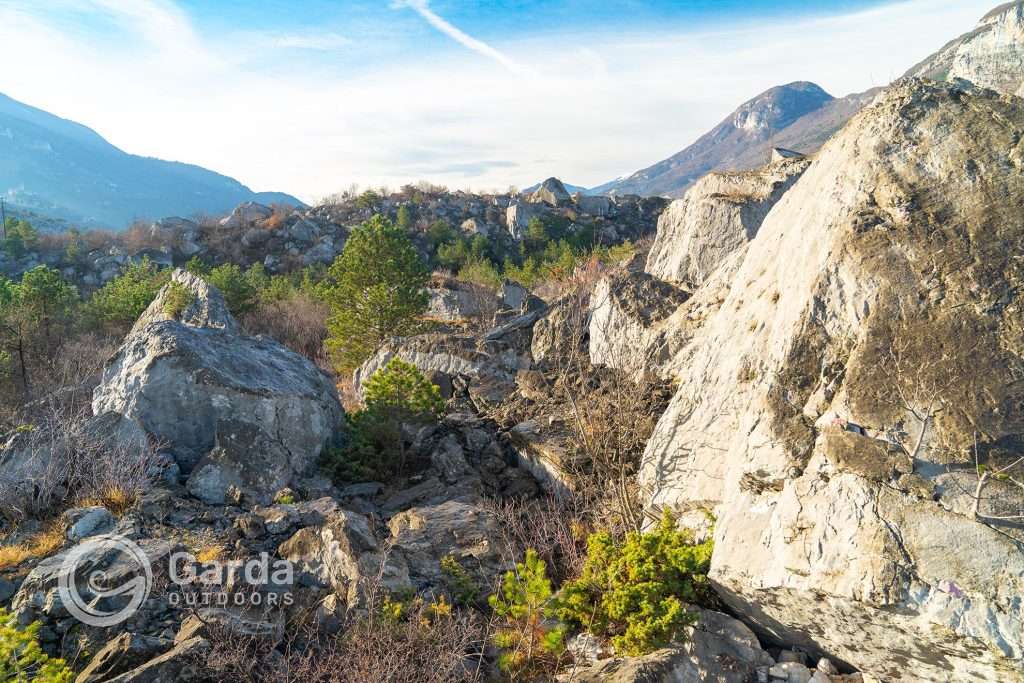
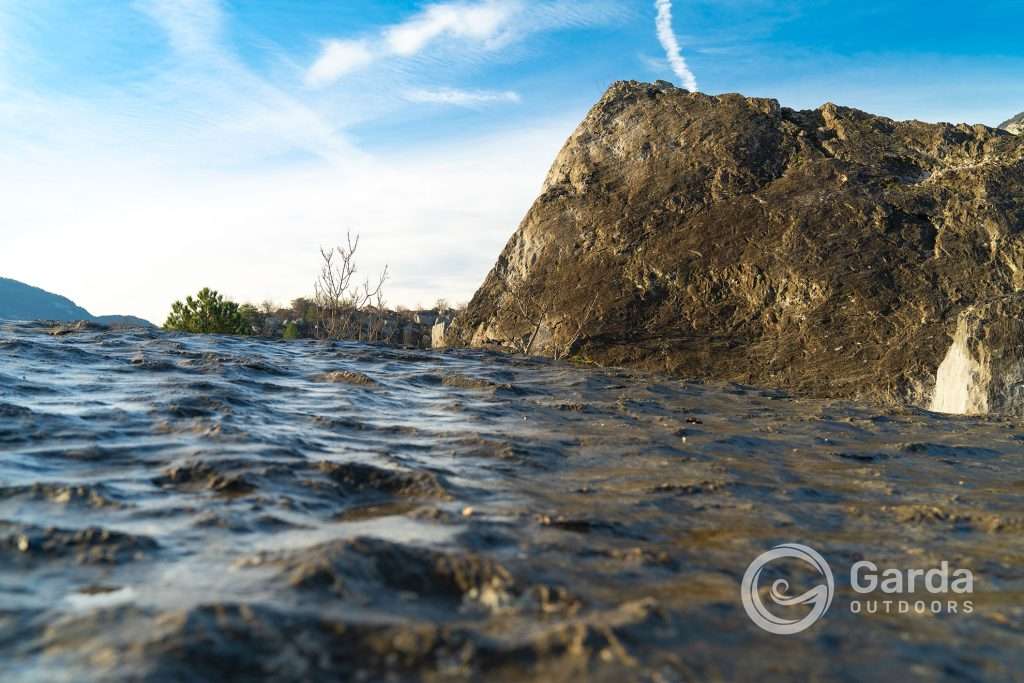
Here at the Marocche di Dro, every boulder is a page from a geology book, telling the story of a distant past and forces of unimaginable power. Visiting them was truly a profound experience.
Ciao, dear Outdoors!
Silvia Turazza
